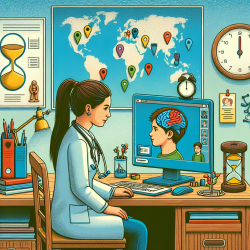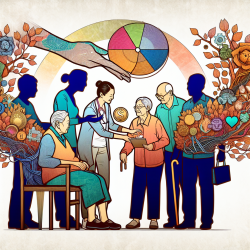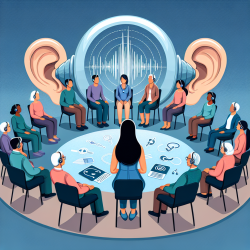Introduction
In recent years, telepsychiatry has emerged as a vital tool in the field of mental health, providing access to care for diverse populations and improving the reach of psychiatric services. The study titled "A Survey Comparing Adult and Child Psychiatry Trainees, Faculty, and Program Directors’ Perspectives About Telepsychiatry: Implications for Clinical Care and Training" offers valuable insights into how clinical experience influences interest and concerns regarding telepsychiatry. This blog will explore how practitioners can leverage these findings to enhance their telepsychiatry skills and encourage further research in this evolving field.
Key Findings from the Research
The study surveyed 270 respondents, including residents, fellows, program directors, and faculty, to assess their clinical experience, interest, and concerns about telepsychiatry. Notably, the research highlighted the following points:
- Limited clinical experience with telepsychiatry was common among respondents, with 46% having none and 40% of child psychiatry respondents having some experience.
- Interest in telepsychiatry increased with clinical experience, particularly in the range of 6–20 hours.
- Common concerns included the inability to perform physical exams, connectivity issues, medico-legal risks, and the loss of nonverbal cues.
- Child psychiatry respondents were less concerned about these issues compared to their non-child counterparts, although they reported more worry about nonverbal cues.
Improving Telepsychiatry Skills
Practitioners can enhance their telepsychiatry skills by implementing the following strategies based on the research findings:
- Gain Clinical Experience: Engage in telepsychiatry sessions to build confidence and interest. Aim for at least 6–20 hours of experience to alleviate concerns and enhance skills.
- Address Concerns Proactively: Develop strategies to mitigate common concerns such as connectivity issues and medico-legal risks. This might include investing in reliable technology and staying informed about legal guidelines.
- Focus on Nonverbal Communication: Since child psychiatrists expressed concern about losing nonverbal cues, practitioners should hone their skills in interpreting verbal communication and facial expressions during virtual sessions.
- Participate in Training Programs: Engage in telepsychiatry training programs and workshops to stay updated on best practices and technological advancements.
Encouraging Further Research
The study underscores the need for more research to understand the impact of clinical experience on telepsychiatry interest and concerns. Practitioners can contribute to this growing body of knowledge by:
- Collaborating with Academic Institutions: Partner with universities and research centers to participate in studies and share clinical experiences.
- Documenting Outcomes: Keep detailed records of telepsychiatry sessions to provide data for future research on effectiveness and patient satisfaction.
- Advocating for Curriculum Development: Support the creation of evidence-based telepsychiatry curricula for trainees and practicing psychiatrists.
Conclusion
Telepsychiatry holds immense potential for expanding access to mental health care and improving patient outcomes. By embracing clinical experience, addressing concerns, and engaging in ongoing training, practitioners can enhance their telepsychiatry skills and contribute to the field's advancement. For those interested in delving deeper into the research, I encourage you to read the original paper: A Survey Comparing Adult and Child Psychiatry Trainees, Faculty, and Program Directors’ Perspectives About Telepsychiatry: Implications for Clinical Care and Training.










